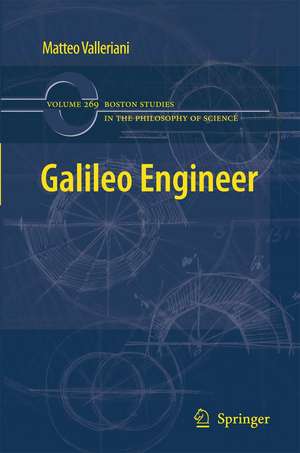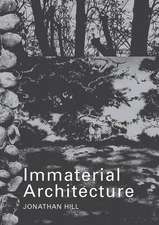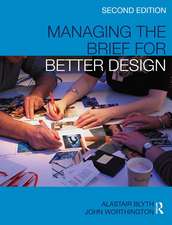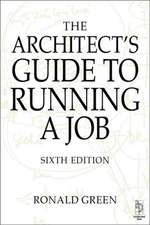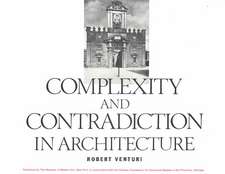Galileo Engineer: Boston Studies in the Philosophy and History of Science, cartea 269
Autor Matteo Vallerianien Limba Engleză Paperback – 5 sep 2012
| Toate formatele și edițiile | Preț | Express |
|---|---|---|
| Paperback (1) | 642.51 lei 6-8 săpt. | |
| SPRINGER NETHERLANDS – 5 sep 2012 | 642.51 lei 6-8 săpt. | |
| Hardback (1) | 571.85 lei 38-44 zile | |
| SPRINGER NETHERLANDS – 6 iun 2010 | 571.85 lei 38-44 zile |
Din seria Boston Studies in the Philosophy and History of Science
- 18%
 Preț: 944.19 lei
Preț: 944.19 lei - 15%
 Preț: 646.75 lei
Preț: 646.75 lei - 15%
 Preț: 646.75 lei
Preț: 646.75 lei - 15%
 Preț: 699.28 lei
Preț: 699.28 lei - 18%
 Preț: 736.50 lei
Preț: 736.50 lei -
 Preț: 500.02 lei
Preț: 500.02 lei - 15%
 Preț: 643.16 lei
Preț: 643.16 lei - 15%
 Preț: 650.69 lei
Preț: 650.69 lei - 15%
 Preț: 634.18 lei
Preț: 634.18 lei - 15%
 Preț: 642.68 lei
Preț: 642.68 lei -
 Preț: 391.40 lei
Preț: 391.40 lei -
 Preț: 383.33 lei
Preț: 383.33 lei - 18%
 Preț: 944.19 lei
Preț: 944.19 lei - 18%
 Preț: 955.56 lei
Preț: 955.56 lei - 15%
 Preț: 643.65 lei
Preț: 643.65 lei -
 Preț: 392.75 lei
Preț: 392.75 lei - 18%
 Preț: 1229.10 lei
Preț: 1229.10 lei - 18%
 Preț: 1238.23 lei
Preț: 1238.23 lei - 18%
 Preț: 951.29 lei
Preț: 951.29 lei - 18%
 Preț: 1223.25 lei
Preț: 1223.25 lei - 18%
 Preț: 1225.79 lei
Preț: 1225.79 lei - 18%
 Preț: 1226.42 lei
Preț: 1226.42 lei - 18%
 Preț: 1236.82 lei
Preț: 1236.82 lei - 15%
 Preț: 644.49 lei
Preț: 644.49 lei - 18%
 Preț: 1231.78 lei
Preț: 1231.78 lei - 15%
 Preț: 644.30 lei
Preț: 644.30 lei - 18%
 Preț: 957.62 lei
Preț: 957.62 lei - 18%
 Preț: 1222.49 lei
Preț: 1222.49 lei - 18%
 Preț: 947.50 lei
Preț: 947.50 lei - 18%
 Preț: 1833.95 lei
Preț: 1833.95 lei - 18%
 Preț: 1227.99 lei
Preț: 1227.99 lei - 18%
 Preț: 947.35 lei
Preț: 947.35 lei
Preț: 642.51 lei
Preț vechi: 755.88 lei
-15% Nou
Puncte Express: 964
Preț estimativ în valută:
122.96€ • 133.52$ • 103.29£
122.96€ • 133.52$ • 103.29£
Carte tipărită la comandă
Livrare economică 23 aprilie-07 mai
Preluare comenzi: 021 569.72.76
Specificații
ISBN-13: 9789400732308
ISBN-10: 9400732309
Pagini: 344
Ilustrații: XXII, 320 p.
Dimensiuni: 155 x 235 x 18 mm
Greutate: 0.48 kg
Ediția:2010
Editura: SPRINGER NETHERLANDS
Colecția Springer
Seria Boston Studies in the Philosophy and History of Science
Locul publicării:Dordrecht, Netherlands
ISBN-10: 9400732309
Pagini: 344
Ilustrații: XXII, 320 p.
Dimensiuni: 155 x 235 x 18 mm
Greutate: 0.48 kg
Ediția:2010
Editura: SPRINGER NETHERLANDS
Colecția Springer
Seria Boston Studies in the Philosophy and History of Science
Locul publicării:Dordrecht, Netherlands
Public țintă
ResearchCuprins
War and Practice.- Artist-Engineers’ Apprenticeship and Galileo.- Instruments and Machines.- Galileo’s Private Course on Fortifications.- Practice and Science.- The Knowledge of the Venetian Arsenal.- Pneumatics, the Thermoscope and the New Atomistic Conception of Heat.- The Engineer and The Scientist.- Was Galileo an Engineer?.
Recenzii
From the reviews:
“Valleriani’s Galileo Engineer is a valuable contribution to historians of Galileo and of early modern mechanics, as well as to scholars interested in recovering the practices of early modern artisans and engineers. Valleriani’s rich exposition and translated letters provide information not only about technical matters related to Galileo’s instruments and investigations but also about his interactions with craftsmen and merchants. The detailed analyses of Galileo’s working methods … will provide rich fodder for those interested in understanding the practices of early modern artisan-engineers.” (Renée J. Raphael, British Journal for the History of Science, Vol. 44 (4), December, 2011)
“Valleriani’s Galileo Engineer is a valuable contribution to historians of Galileo and of early modern mechanics, as well as to scholars interested in recovering the practices of early modern artisans and engineers. Valleriani’s rich exposition and translated letters provide information not only about technical matters related to Galileo’s instruments and investigations but also about his interactions with craftsmen and merchants. The detailed analyses of Galileo’s working methods … will provide rich fodder for those interested in understanding the practices of early modern artisan-engineers.” (Renée J. Raphael, British Journal for the History of Science, Vol. 44 (4), December, 2011)
Textul de pe ultima copertă
This work systematically investigates and reconstructs the practical knowledge Galileo shared during his lifetime.
Galileo shared many aspects of practical knowledge.These included the methods and experience of foremen and engineers active within various frameworks. Galileo did not always react to such scientific impulses in the same way. On the one hand, he not only shared practical knowledge, but also acted as an engineer, especially within the framework of the art of war at the end of the sixteenth century, and more so during the time he spent in Padua. On the other hand, his scientific achievements were largely based on and influenced by aspects of practical knowledge coming from particular disciplines and activities, without him ever becoming an expert in these disciplines.
Two case studies, the first concerned with Galileo's theory of the strength of materials and the second with his achievement of an atomistic heat doctrine, enable a focus onthe early modern model of generation of new scientific knowledge based on the conflicting interaction between aspects of practical knowledge and Aristotelian theoretical assumptions.
Galileo shared many aspects of practical knowledge.These included the methods and experience of foremen and engineers active within various frameworks. Galileo did not always react to such scientific impulses in the same way. On the one hand, he not only shared practical knowledge, but also acted as an engineer, especially within the framework of the art of war at the end of the sixteenth century, and more so during the time he spent in Padua. On the other hand, his scientific achievements were largely based on and influenced by aspects of practical knowledge coming from particular disciplines and activities, without him ever becoming an expert in these disciplines.
Two case studies, the first concerned with Galileo's theory of the strength of materials and the second with his achievement of an atomistic heat doctrine, enable a focus onthe early modern model of generation of new scientific knowledge based on the conflicting interaction between aspects of practical knowledge and Aristotelian theoretical assumptions.
Caracteristici
Galileo’s activities as a practitioner: the side of Galileo’s work historians did not relate The practical knowledge shared by Galileo and from which his science emerged All the relevant letters from Galileo’s correspondence that provide an understanding of Galileo as an engineer translated into English for the first time
